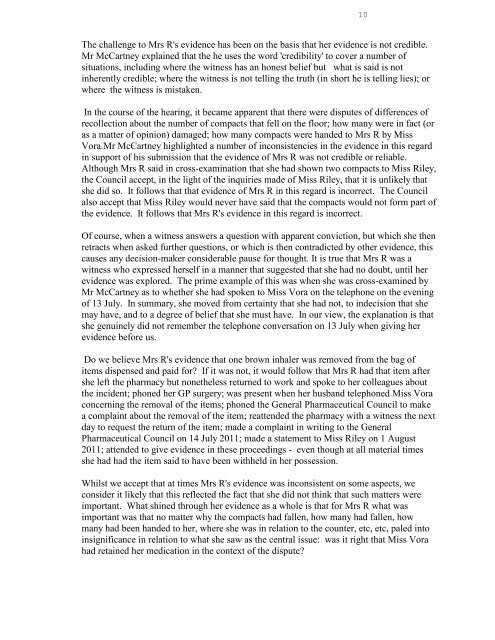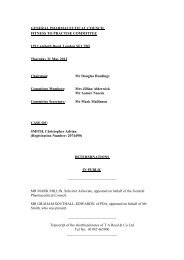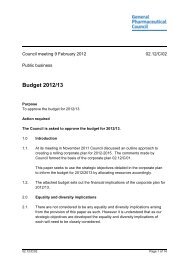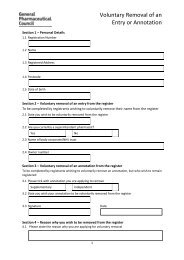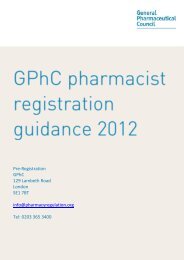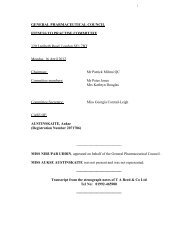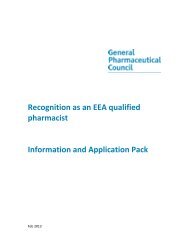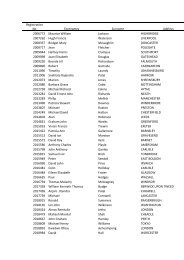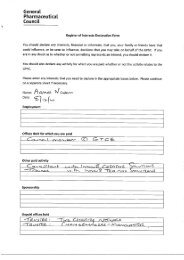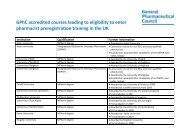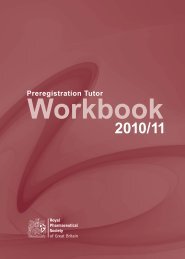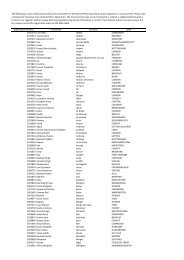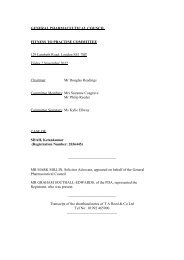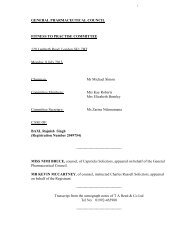Vora Snehlata Jayantilal 2017737 19-02-2013.pdf - General ...
Vora Snehlata Jayantilal 2017737 19-02-2013.pdf - General ...
Vora Snehlata Jayantilal 2017737 19-02-2013.pdf - General ...
Create successful ePaper yourself
Turn your PDF publications into a flip-book with our unique Google optimized e-Paper software.
10The challenge to Mrs R's evidence has been on the basis that her evidence is not credible.Mr McCartney explained that the he uses the word 'credibility' to cover a number ofsituations, including where the witness has an honest belief but what is said is notinherently credible; where the witness is not telling the truth (in short he is telling lies); orwhere the witness is mistaken.In the course of the hearing, it became apparent that there were disputes of differences ofrecollection about the number of compacts that fell on the floor; how many were in fact (oras a matter of opinion) damaged; how many compacts were handed to Mrs R by Miss<strong>Vora</strong>.Mr McCartney highlighted a number of inconsistencies in the evidence in this regardin support of his submission that the evidence of Mrs R was not credible or reliable.Although Mrs R said in cross-examination that she had shown two compacts to Miss Riley,the Council accept, in the light of the inquiries made of Miss Riley, that it is unlikely thatshe did so. It follows that that evidence of Mrs R in this regard is incorrect. The Councilalso accept that Miss Riley would never have said that the compacts would not form part ofthe evidence. It follows that Mrs R's evidence in this regard is incorrect.Of course, when a witness answers a question with apparent conviction, but which she thenretracts when asked further questions, or which is then contradicted by other evidence, thiscauses any decision-maker considerable pause for thought. It is true that Mrs R was awitness who expressed herself in a manner that suggested that she had no doubt, until herevidence was explored. The prime example of this was when she was cross-examined byMr McCartney as to whether she had spoken to Miss <strong>Vora</strong> on the telephone on the eveningof 13 July. In summary, she moved from certainty that she had not, to indecision that shemay have, and to a degree of belief that she must have. In our view, the explanation is thatshe genuinely did not remember the telephone conversation on 13 July when giving herevidence before us.Do we believe Mrs R's evidence that one brown inhaler was removed from the bag ofitems dispensed and paid for? If it was not, it would follow that Mrs R had that item aftershe left the pharmacy but nonetheless returned to work and spoke to her colleagues aboutthe incident; phoned her GP surgery; was present when her husband telephoned Miss <strong>Vora</strong>concerning the removal of the items; phoned the <strong>General</strong> Pharmaceutical Council to makea complaint about the removal of the item; reattended the pharmacy with a witness the nextday to request the return of the item; made a complaint in writing to the <strong>General</strong>Pharmaceutical Council on 14 July 2011; made a statement to Miss Riley on 1 August2011; attended to give evidence in these proceedings - even though at all material timesshe had had the item said to have been withheld in her possession.Whilst we accept that at times Mrs R's evidence was inconsistent on some aspects, weconsider it likely that this reflected the fact that she did not think that such matters wereimportant. What shined through her evidence as a whole is that for Mrs R what wasimportant was that no matter why the compacts had fallen, how many had fallen, howmany had been handed to her, where she was in relation to the counter, etc, etc, paled intoinsignificance in relation to what she saw as the central issue: was it right that Miss <strong>Vora</strong>had retained her medication in the context of the dispute?


